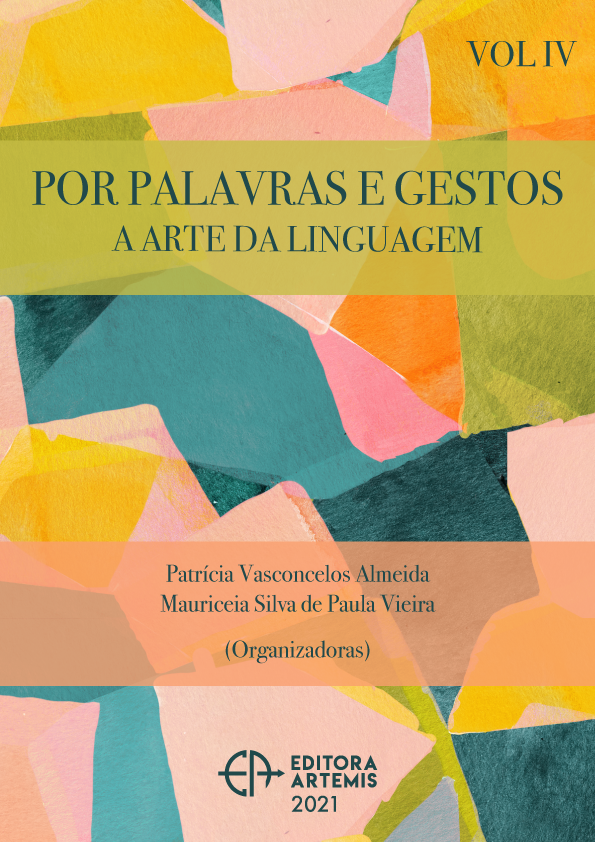
Ensino de Leitura e Escrita em Ambiente Digital
Toma-se por base que ensinar a ler, no sentido amplo do letramento, não se esgota nas séries iniciais do ensino. Para isso, busca-se em produções textuais de jovens publicadas na internet o disparador motivacional para a leitura de livros de literatura. Tais produções escritas emergem da internet aproveitando os recursos do ambiente digital, em especial a publicação, a divulgação e a participação do leitor por meio de comentários e críticas. Vem-se analisando a escrita de jovens, publicada em ambiente virtual, conhecida como fanfiction: sequências, paródias e versões alternativas de aventuras novas e velhas, com os heróis favoritos desses jovens, extraídos das literaturas clássica e contemporânea. A fanfiction mostra-se como uma possibilidade rica para o trabalho de produção textual, levando à reflexão sobre a língua, e de desenvolvimento do hábito de leitura literária, uma vez que para se produzir uma nova fanfiction para uma história pré-existente é necessário conhecer a fundo seus personagens e suas tramas, o estilo do autor. A fanfiction torna-se, portanto, forte aliada do professor na (re)significação do trabalho com leitura e escrita na escola. Compactua-se, assim, com a teoria da enunciação de Bakhtin (2002, 2011), para quem o dialogismo se estabelece na relação de sentidos entre enunciados; e com Marcuschi (2005), Chartier (2002) e Paiva (2008) que apontam para novos caminhos de leitura e escrita no uso da internet: a hiperleitura. A pesquisa encontra-se em desenvolvimento, já tendo passado pelas etapas de construção do embasamento teórico e do acompanhamento e análise de fanfictions. A etapa em desenvolvimento é de oficinas de produção de fanfictions com alunos de 8º e 9º anos do ensino Fundamental de escolas públicas da Baixada Fluminense – RJ.
Ensino de Leitura e Escrita em Ambiente Digital
-
DOI: 10.37572/EdArt_2901212797
-
Palavras-chave: Leitura; Escrita; Internet; Fanfiction; Ensino
-
Keywords: Reading; Writing; Internet; Fanfiction; Teaching
-
Abstract:
Teaching how to read, in the broad sense of literacy, is not limited to the initial grades of education. Textual productions of young people published on the internet are sought for the motivational trigger for reading literature books. Those written productions emerge from the internet taking advantage of the resources of the digital environment, in particular the publication, dissemination and participation of the reader through comments and criticisms. We have been analyzing the writing of young people, published in a virtual environment, known as fanfiction: sequences, parodies and alternative versions of new and old adventures, with the favorite heroes of these young people, extracted from classic and contemporary literature. Fanfiction shows itself as a rich possibility for the work of textual production, leading to reflection on the language, and the development of the literary reading habit, since to produce a new fanfiction for a pre-existing story it is necessary to know in depth his characters and his plots, the style of the author. Fanfiction therefore becomes a strong ally of the teacher in the meaning of work with reading and writing at school. Based in Bakhtin's enunciation theory (2002, 2011), for whom dialogism is established in the relation of meanings between sentences; and in Marcuschi (2005), Chartier (2002) and Paiva (2008) who point to new ways of reading and writing on internet: hyper-reading. The research is under development, having already gone through the stages of building the theoretical foundation and monitoring and analyzing fanfictions. The stage under development is of fanfiction production workshops with 8th and 9th grade students from public schools in Baixada Fluminense - RJ.
-
Número de páginas: 14
- Carmen Pimentel

